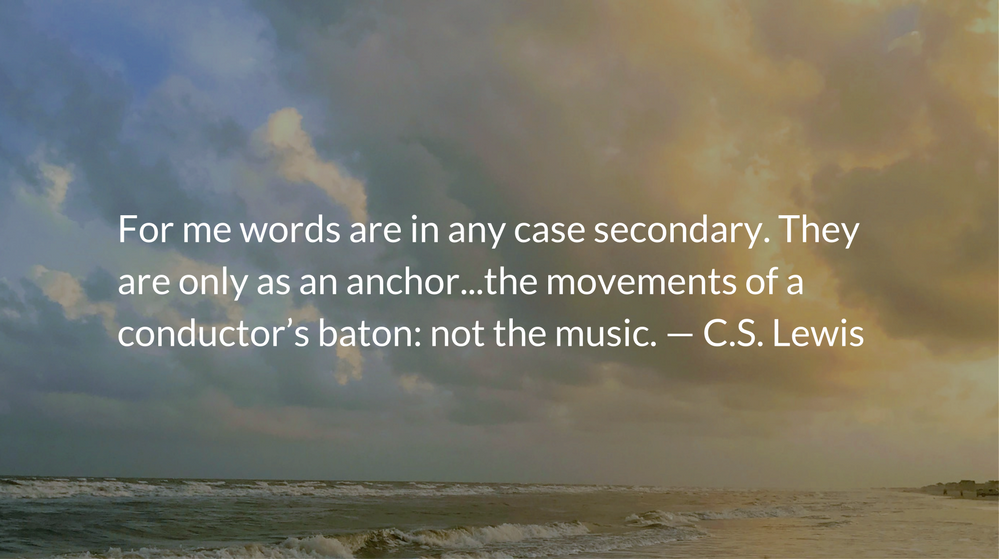Selected by reader, Jon Polk, from Hong Kong
Lewis’ description of praying without words is challenging and refreshing. Discovering new methods of contemplative prayer enriches my spiritual formation.
Originally posted on September 12, 2017 with readings from 2 Samuel 7 and 2 Corinthians 1.
On him we have set our hope that he will continue to deliver us, as you help us by your prayers. — 2 Corinthians 1.10-11
Reflection: Lewis on Prayer Without Words :: Readers’ Choice
By C.S. Lewis
For many years after my conversion I never used any ready-made forms except the Lord’s Prayer. In fact I tried to pray without words at all—not to verbalise the mental acts. Even in praying for others I believe I tended to avoid their names and substituted mental images of them. I still think the prayer without words is the best—if one can really achieve it. But I now see that in trying to make it my daily bread I was counting on a greater mental and spiritual strength than I really have.
To pray successfully without words one needs to be “at the top of one’s form.” Otherwise the mental acts become merely imaginative or emotional acts—and a fabricated emotion is a miserable affair. When the golden moments come, when God enables one really to pray without words, who but a fool would reject the gift?
But He does not give it—anyway not to me—day in, day out. My mistake was what Pascal, if I remember rightly, calls “Error of Stoicism”: thinking we can do always what we can do sometimes.
And this, you see, makes the choice between ready-made prayers and one’s own words rather less important for me than it apparently is for you. For me words are in any case secondary. They are only as an anchor. Or, shall I say, they are the movements of a conductor’s baton: not the music. They serve to canalise the worship or penitence or petition which might without them—such are our minds—spread into wide and shallow puddles.
It does not matter very much who first put them together. If they are our own words they will soon, by unavoidable repetition, harden into a formula. If they are someone else’s, we shall continually pour into them our own meaning.
*Excerpt from Letters to Malcolm: Chiefly on Prayer, C.S. Lewis.
Prayer: The Refrain for the Morning Lesson
I am like a green olive tree in the house of God; I trust in the mercy of God forever and ever. — Psalm 52.8
– Prayer from The Divine Hours: Prayers for Springtime by Phyllis Tickle.
Prayers from The Divine Hours available online and in print.
Today’s Readings
Jeremiah 44 (Listen – 6:10)
Psalm 20-21 (Listen – 2:37)
Additional Reading
Read More from Lewis on Liturgiology — Part 1
Every service is a structure of acts and words through which we receive a sacrament, or repent, or supplicate, or adore.
Read More from Lewis on Liturgiology — Part 2
Any tendency to a passionate preference for one type of service must be regarded simply as a temptation.
Readers’ Choice
We have a handful of spots left for your favorite posts of the year. Submit a Readers Choice post. Tell us about a post and what it meant to you.
Support our Work
Over 4,000 people every week read an email devotional from The Park Forum. Support our work with a monthly or a one time donation.






